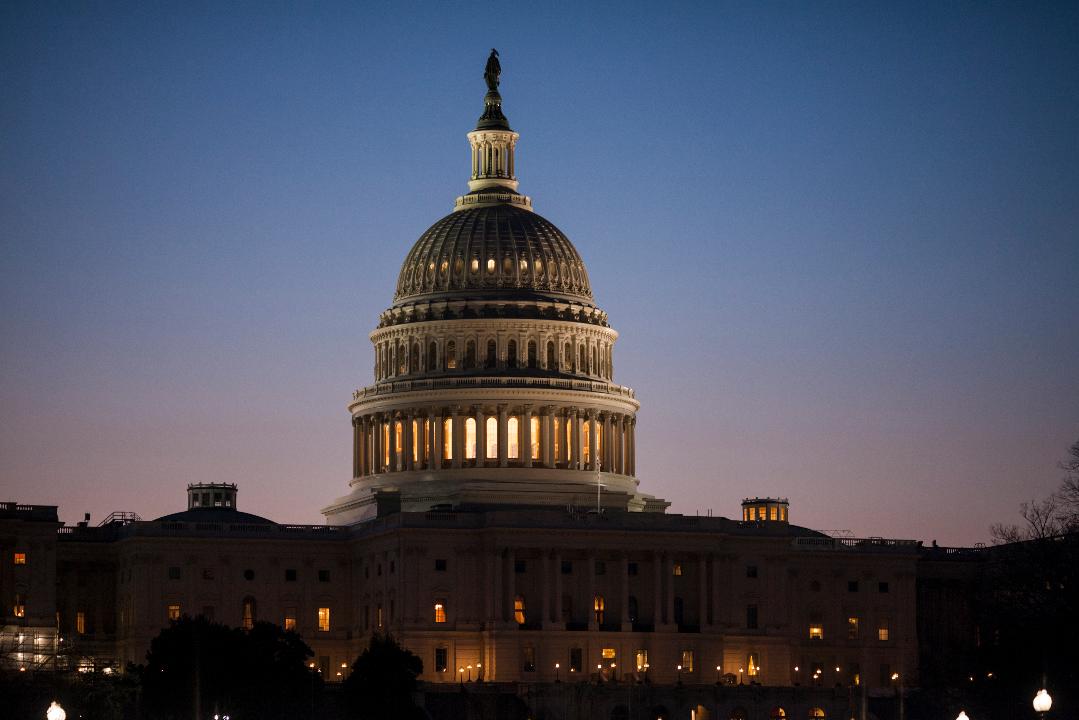Deficit looms over Republican tax bill as Senate nears vote
Congressional Republicans scrambled on Wednesday to reformulate their tax-cut bill to satisfy lawmakers worried about how much it would expand the federal deficit, as the measure moved toward a decisive U.S. Senate floor vote later this week.
Stocks rallied on optimism that the tax-cut package could pass but obstacles remained, including attempts to address the estimated $1.4 trillion that the bill would add to the United States’ $20 trillion national debt over 10 years.
Senate Majority Leader Mitch McConnell said lawmakers would take a procedural step forward on Wednesday by voting whether to begin formal debate on the bill. That could lead to a vote on Thursday or Friday.
Democrats oppose the legislation, but only a simple majority of senators will be needed to start debate on the bill, which aims to cut taxes on corporations, other businesses and a wide range of individuals and families.
Republicans have a 52-48 majority in the 100-member Senate, giving them enough votes to approve the bill if they can hold together. Without Democratic support, Republicans can afford to lose no more than two of their own votes.
President Donald Trump was traveling to Missouri on Wednesday to give a speech imploring members of his own party to get behind the effort, which would be his first significant legislative achievement since taking office in January.
“The Senate must pass tax cuts and bring Main Street roaring back to life,†Trump will say, according to excerpts of his remarks released by the White House.
Democrats say the tax cuts are a giveaway for corporations and the wealthy at the expense of working Americans.
The bill was developed behind closed doors by a small group of senior congressional and Trump administration figures, with the Republican rank and file have little input and Democrats not involved.
Senate Democratic leader Chuck Schumer said on Wednesday the process was starkly partisan and unwise.
“We’re potentially only one day away from a final vote on a bill to rewrite the U.S. tax code, and significant parts of the Republican bill are still up in the air. By the time of the vote, no one will have a definitive analysis of how the bill would impact the economy,†he said.
A major sticking point in the Senate was how the bill deals with the federal budget deficit and the national debt.
Senator Bob Corker, one of few remaining fiscal hawks in the Republican Party, wants to add a tax snap-back provision to the bill that would raise taxes automatically if economic growth targets are not hit in the future to offset a higher deficit.
That trigger proposal has become a target of growing criticism among conservative Republicans and lobbyists, including interest groups aligned with the billionaire industrialists Charles and David Koch, who say the prospect of tax hikes could undermine future economic growth.
“I’d prefer not having it there. We’re probably going to have one. But I’d prefer not having it,†Republican Senate Finance Committee Chairman Orrin Hatch told reporters.
“GETTING A DEAL DONEâ€
Republican Senator David Perdue, a businessman from Georgia, said lawmakers could find common ground on a measure that delays any tax hike for at least five years and spreads the prospective burden among those who benefit from Republican tax cuts.
“This is about getting a deal done,†Perdue told a press conference with Republican senators and representatives of Koch-aligned groups including Americans for Prosperity. “I don’t want this bill destroyed because of a pursuit for perfection. I’m optimistic, actually, that we’ll find a common ground here.â€
Federal Reserve Chair Janet Yellen, asked about the tax trigger idea at a congressional hearing on the economy on Wednesday, said she was worried about growing U.S. debt.
“The idea of triggers is motivated by the concern that some have over the picture we have of debt sustainability now and into the future and I would simply say I am very worried about the sustainability of the U.S. debt trajectory,†she said. Yellen will steps down from her post early next year.
Republican Senator Susan Collins, who has not yet announced a commitment to vote for the bill, sounded optimistic on Tuesday that her concerns were being addressed. She had serious qualms about the plan to include repeal of the “individual mandate†from the Obamacare healthcare program in the tax bill.
But Trump and other Republicans on Tuesday signaled willingness to mitigate the impact of that by allowing a vote on Collins’ measure providing money to help insurers cover the most expensive patients, senators leaving a lunch with Trump said.
Trump indicated he would support putting the Collins provision - and another proposal continuing Obamacare subsidy payments for low-income people for two years - into a government funding bill, so long as the tax bill still includes the repeal of the Obamacare individual mandate, Senator Lindsey Graham told reporters on Tuesday.
Collins told reporters she would pay for her proposal to retain a $10,000 property tax deduction by keeping the top individual rate at 39.6 percent and reducing the corporate income tax rate from 35 percent to 21 percent, instead of 20 percent proposed in the bill.




















